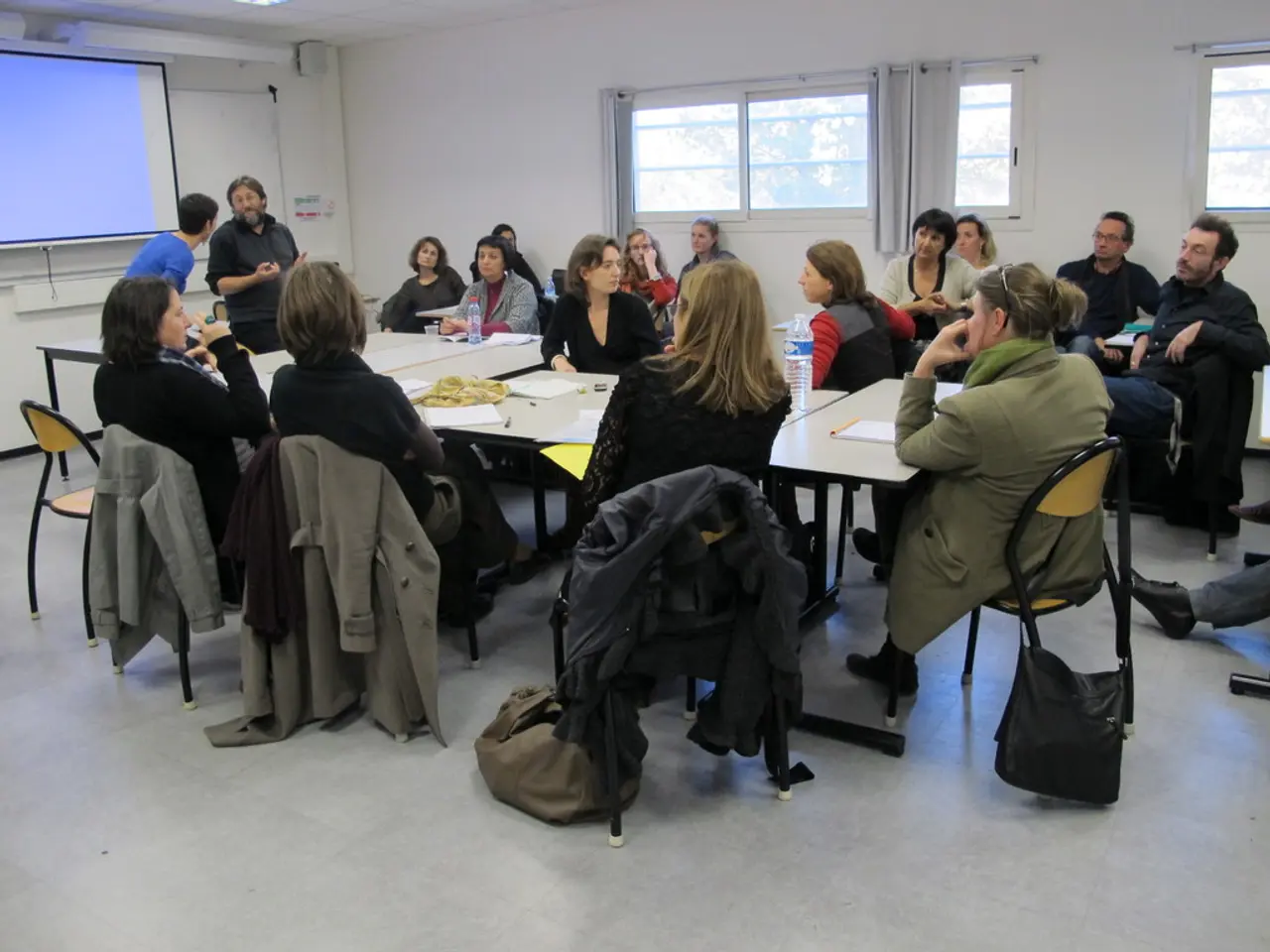Observing Influence: The Reason We Alter Our Actions in the Presence of Others
In today's digital age, the presence of an audience can significantly influence our actions, especially in creative work, social media, and personal decision-making. Understanding and managing the audience effect is crucial to maintain authenticity and intentionality in our choices.
One key strategy is conscious audience selection. Instead of trying to please everyone, focus on whose opinions truly matter to you. By performing or sharing your work with a small, trusted group whose judgment you respect, you can maintain authenticity and reduce the pressure to conform superficially.
Another approach is the sandboxed approach, where you create separate spaces for audience-aware and audience-free work. Allowing yourself periods of creating solely for personal satisfaction without seeking external validation preserves creative freedom and reinforces intrinsic motivation.
Strategic audience leverage is another tactic that can be beneficial. By sharing progress publicly on a learning project, for example, you can create accountability and energy. However, it's essential to choose challenges aligned with your own ambitions rather than just to impress others.
When making decisions, it's important to pause and reflect. Ask yourself whether the decision stems from your own desires or from expectations of others. This helps regain agency and intentionality in your actions.
Being aware of social proof and biases is also crucial. Recognizing that social proof influences many decisions, consciously or subconsciously, can help you critically evaluate when external influence is helpful or detrimental to your authentic goals.
The audience effect can also cause cognitive dissonance, internal tension when actions conflict with self-image or beliefs. Acknowledging and addressing this dissonance is important to maintain psychological balance and honest behaviour.
On social media, the audience effect makes individuals curate different versions of themselves for different platforms. Recognizing this gives you back your agency.
The audience effect can impact creative work, potentially leading to audience-pleasing mediocrity instead of genuine creativity. In "performance mode," social approval becomes prioritized over personal preferences, which can cause individuals to choose safer options, more impressive goals, and more socially acceptable paths.
Career decisions can also be influenced by the audience effect, leading individuals to choose prestigious paths that may look impressive but feel hollow from within. The audience effect can fragment an individual's sense of self and cause unconscious adjustments in personality or behaviour in relationships to fit in, potentially leading to self-doubt.
To harness the energy and focus that comes from having an audience, while maintaining conscious control over how external perceptions influence your creative work, social media presence, career moves, relationships, and personal decisions, it's important to engage with your audience consciously and intentionally rather than unconsciously conforming to perceived external expectations.
[1] Berk, J. L., & Wann, D. L. (2016). Social influence and conformity. Annual Review of Psychology, 67, 435-459.
[2] Cialdini, R. B. (2009). Influence: Science and practice. Allyn & Bacon.
[3] Festinger, L. (1957). A theory of cognitive dissonance. Stanford University Press.
- In personal-growth and education-and-self-development, integrating metacognition can help individuals understand how the audience effect influences their creative work, social media presence, career moves, relationships, and personal decisions, leading to more intentional and authentic choices.
- By practicing metacognition, one can identify, evaluate, and manage cognitive dissonance caused by the audience effect in various aspects of life, ensuring psychological balance and honest behavior towards personal growth and self-development.




